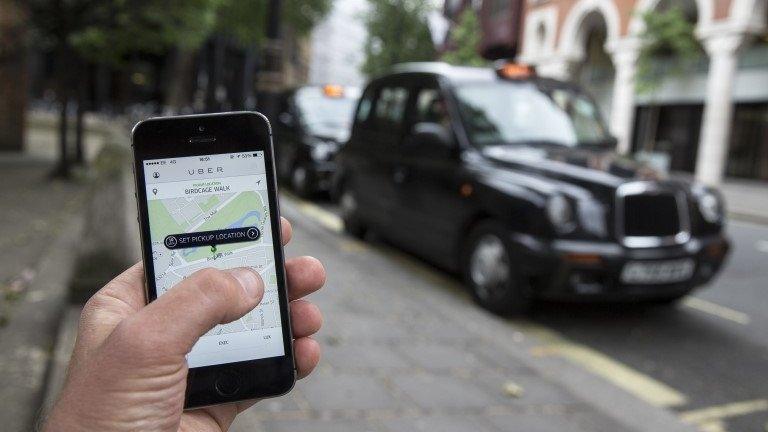London travel: Uber launches black cab sign-ups
- Published
- comments
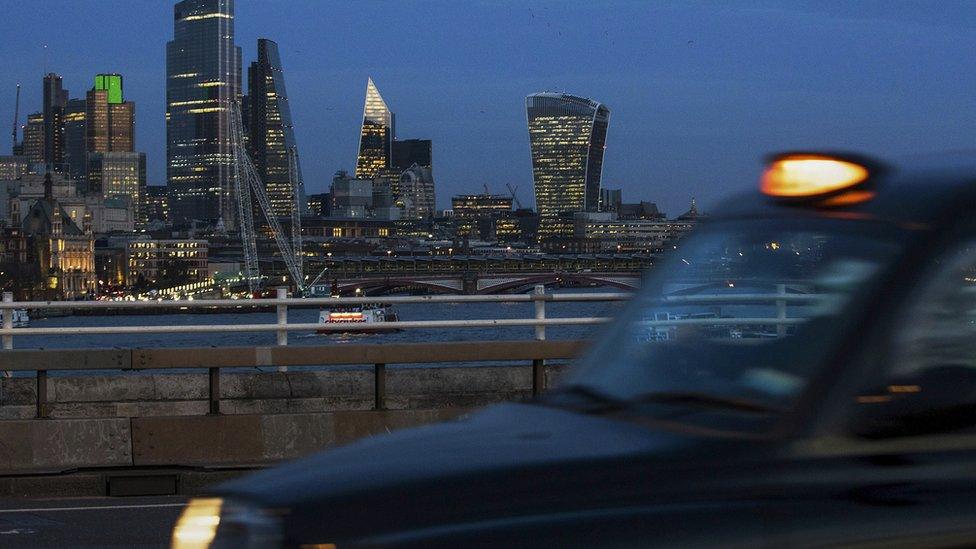
Londoners will be able to book a black cab on Uber in the new year
Uber is opening up its ride-hailing app to black-cab drivers in the new year, in what it has dubbed a "partnership" with hackney carriage drivers.
However, the Licensed Taxi Drivers' Association (LTDA), which represents more than 10,000 members, said it was not consulted ahead of Uber's "unilateral announcement".
The LTDA's Steve McNamara said joining Uber would be "sullying" the trade.
But Uber said a "small number" of cab drivers had already signed up.
A spokesman for the US-based business added it hoped to recruit "several hundred" by January.
Mr McNamara, LTDA general secretary, said there was "no demand for this partnership" from the drivers it represented and that London's cabbies had seen "significant growth since the pandemic, with record demand for cabs, more work through taxi apps and huge levels of investment being made in new electric taxis".
"We don't believe our members will even consider joining the app, given its well-documented poor record on everything from passenger safety to workers' rights in London," he said.
Uber has always said it operates "lawfully" in London.
The ride-hailing service said Hameed Hameedi, who completed the Knowledge in 2015, was the first London cab driver to have signed up.
"Uber opening up to black cabs will be a huge advantage to the trade," said Mr Hameedi.
"App bookings are good for me because I know where my next job will be. More passengers booking trips means more cash for cabbies."
But London licensed taxi driver, Howard Taylor, said he would "never consider joining Uber".
"London black cabs are the gold standard," he said.
Uber says it will be offering black-cab drivers who sign up six months free commission for bookings on the app.
"That's how they lure people in and that's how they did it when they started in London, by offering cheap fares to passengers, and once they'd got them on to the platform the fares got hiked again," Mr Taylor said.
He added: "We go the extra mile to help our passengers and are committed to providing a safe, accessible and efficient service. From everything I've seen, I don't believe Uber shares these commitments."

Analysis by Tom Edwards, BBC London transport correspondent
For years the black-cab community has hated Uber.
It has orchestrated many demonstrations and campaigns against the app which came to London to try and disrupt the market in 2012.
Black hackney cabs are meant to be the only cars you can hail on the street, but the app technology and smartphones changed that and meant people started "e-hailing" minicabs.
Many cabbies thought that was unjust.
Uber has also not always had a good relationship with the London authorities.
It lost its licence in 2017 after Transport for London accused the company of having "a lack of corporate responsibility" with "public safety and security implications".
It highlighted shortcomings reporting criminal offences and doing background checks. It kept its licence on appeal and has since tried to clean up its act.
The big question is will black cabbies join Uber in big numbers?
This has been a long, bitter dispute and, as one said to me, cabbies have very long memories.

Andrew Brem, general manager of Uber UK, said: "Uber and taxis are better together.
"Black cabs are an iconic part of the capital, loved by Londoners and visitors alike, and we are proud to work side by side.
"Partnership is win, win, win: helping London cab drivers earn more, boosting travel options for passengers and making London's transport network more efficient."

Listen to the best of BBC Radio London on Sounds and follow BBC London on Facebook, external, X, external and Instagram, external. Send your story ideas to hello.bbclondon@bbc.co.uk, external
Related topics
- Published26 March 2022
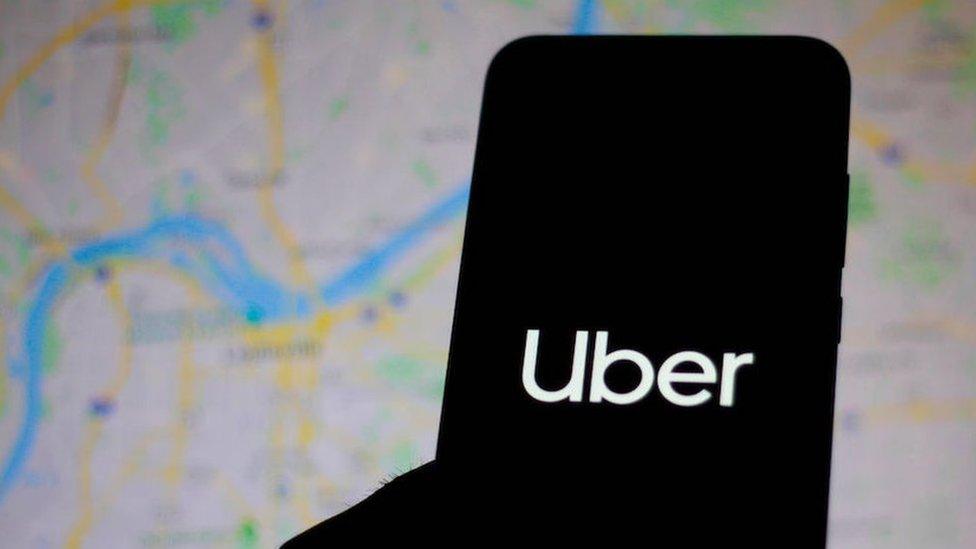
- Published21 January 2021
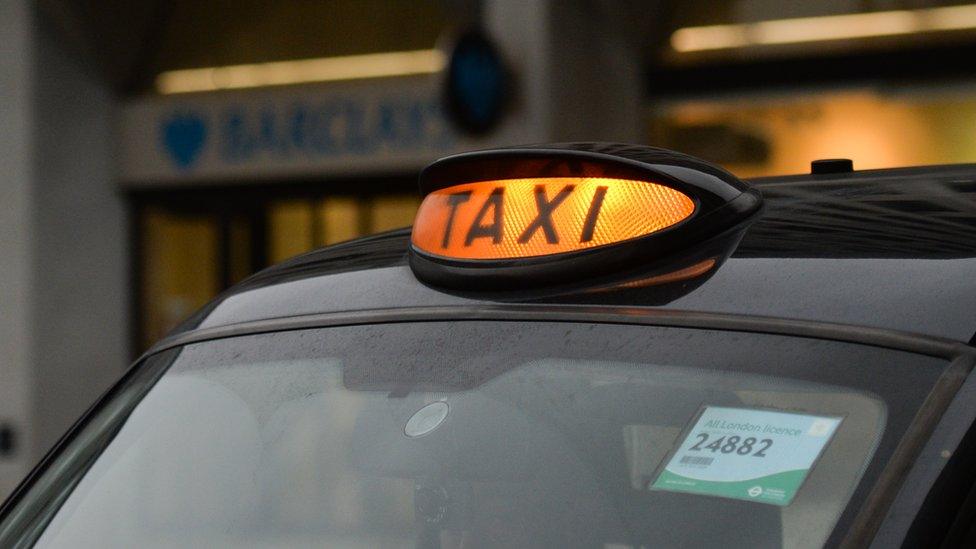
- Published10 November 2017
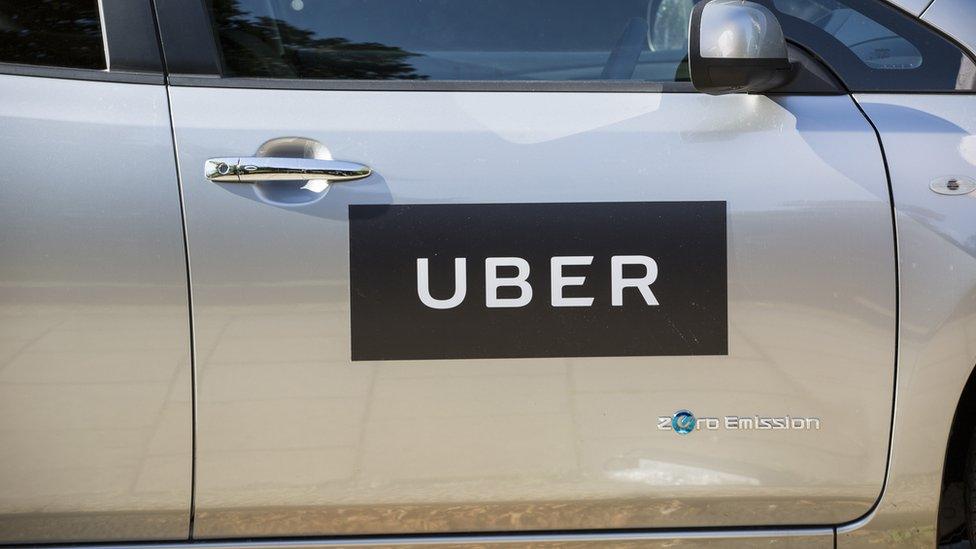
- Published29 July 2015
